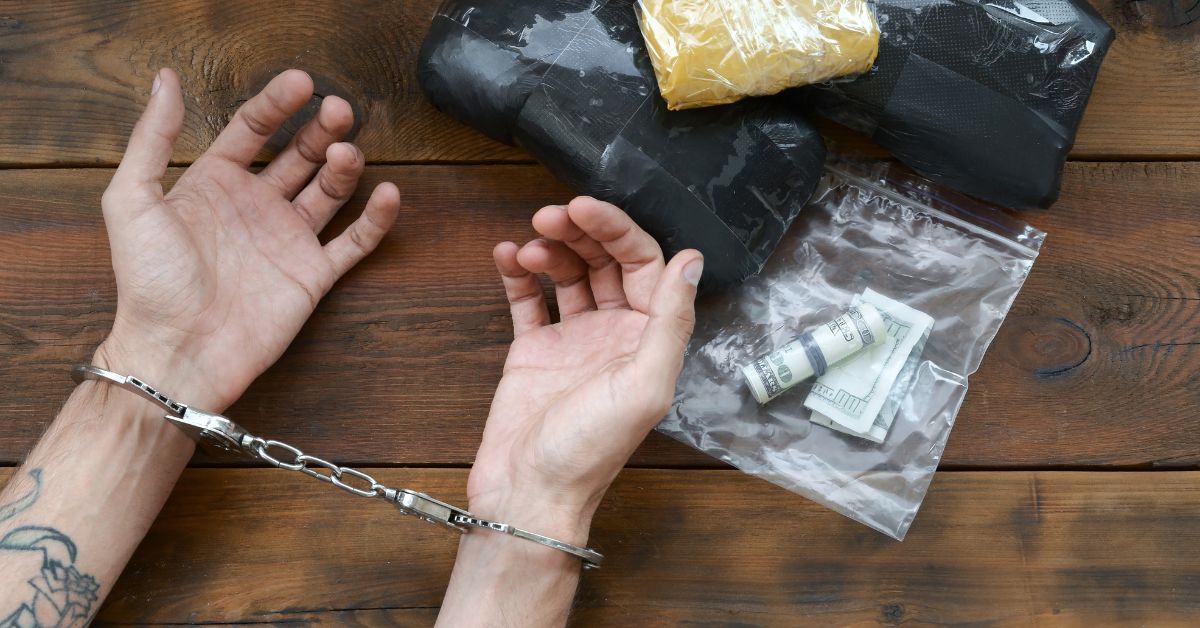Imagine one day, while cleaning your son’s room, you stumble upon something hidden under his bed – a stash of drugs. The world around you freezes as the reality hits hard like a punch in the gut – he is not just using drugs; your son may be a drug dealer.
Your heart races, and your mind spirals into chaos. How could this happen? What do you do next? This is an unchartered territory for any parent.
In this guide, we will navigate through these murky waters together – exploring how best to confront your child about drug dealing, understanding why kids get involved in such activities in the first place, and looking at ways to seek professional help if necessary.
How Do I Know if My Son Is Selling Drugs?
The fear of discovering your child may be involved in drug dealing can be paralyzing for any parent. Do not jump to conclusions if you suspect this might be the case. Approach the situation with calmness and understanding.
Remember that your instinct is powerful as a parent – trust in it. Also, remember that open communication with your son will be essential in unraveling the truth and guiding him toward a safer path.
As the initial shock subsides, you might find yourself on an emotional rollercoaster – fear, anger, guilt, and confusion may all come simultaneously. But remember that reacting impulsively may not be helpful.
Recognizing Signs of Drug Dealing
We often associate drug use with physical changes – bloodshot eyes or sudden weight loss, but when your child is selling drugs, the signs can be different. Here are some of the red flags you may notice:
- Sudden increase in money without explanation: If your child suddenly has more cash than usual and can’t explain where it came from, this could be a sign they’re profiting from drug sales.
- Secretive phone calls: Frequent private conversations or increased texting might indicate communication with potential buyers.
- Frequent outings at odd hours: Regularly leaving the house at strange times, especially without giving satisfactory explanations, could suggest drug dealing activities.
- Unexplained mood swings: Sudden emotional shifts that don’t seem to have a clear cause may signal stress associated with selling drugs.
- Aggressive behavior: Increased aggression might be due to tension related to their illicit activities.
Recognizing these indicators is critical to addressing the issue effectively.
What Can I Do as a Parent if My Son Deals Drugs?

Before confronting him head-on, let’s understand why kids deal drugs in the first place. Often, it’s more complex than simply labeling it as ‘bad behavior.’
It could stem from various factors like peer pressure, desire for financial independence, or even as a misguided coping mechanism for stress or trauma.
It might be frightening, but remember, it’s crucial to approach this situation armed with knowledge, compassion, and a plan.
Remember, too, that peddling drugs carries severe risks and consequences – legal troubles aside; it can put their life and others at risk.
These are the steps to follow if your kid is dealing drugs:
Find His Stash
One practical step you can take if you suspect your son may be up to this is to find his stock of drugs. This can provide tangible evidence and give you a better understanding of the extent of his involvement in drug selling. Be prepared for what you might find and use it as a basis for your following conversation with him.
Consider places he considers safe or private. This could be his bedroom, tiny hidden spots like inside a book, in a sock drawer, under the mattress, or even behind wall posters. Also, check backpacks, lockers, or wardrobes.
Other potential hiding spots include outdoor areas like a backyard shed or under loose patio stones. Remember to approach this with sensitivity and caution as it is an invasion of privacy – so it should only be done if there are serious concerns and you intend to address them promptly.
WATCH: Free, confidential workshop that explains how to "Love Another Way"
Talk to Your Child
You’ve gathered your thoughts and evidence and steeled yourself for the conversation ahead – but how do you start? Here are some tips you can follow when talking to your son:
- Choose an appropriate time when both of you are calm.
- Express concern instead of accusation.
- Listen to his side of the story with an open mind.
Remember that this talk isn’t about blaming but understanding.
Set Rules and Boundaries
When it comes to managing this situation, understanding their motivations and vulnerabilities is as crucial as setting rules and boundaries.
This includes being aware of the traits that put kids at risk for addiction, which can provide valuable insights into their behavior.
However, establishing guidelines in this scenario is not about controlling or punishing your child. It’s all about accountability, respect, and healthier choices while addressing the root causes of drug peddling.
Here are the key steps to consider in this journey:
- Identifying the Need for Rules: Recognize how rules are essential as clear guidelines for acceptable behavior in your family. These rules cover different areas, like drug use, curfew times, and honest communication. Keep them simple and practical to prevent confusion or pushback.
- Communicating the Rules: Discuss openly with your son and explain these rules clearly. Make sure he understands this isn’t punishment but a step towards healthier living.
- Establishing Consequences for Breaking Rules: Figure out sensible outcomes for breaking each rule, like having stricter restrictions on going out if curfew is violated. These consequences are not meant to be severe punishments but incentives to promote better decision-making.
- Consistency Is Key: Stick to established boundaries even when things get tough. Each day is a step forward, no matter how small it may seem.
Establishing clear-cut rules within your family dynamic can be one of the ways to achieve this. Such guidelines provide structure and make expectations explicit, reducing room for misunderstanding and thus alleviating some of your concerns.
All these changes may seem drastic at first, but this approach promotes mutual respect and understanding – crucial elements in navigating this challenging path.
The Relationship Between Selling and Using Drugs

It’s common to assume that using drugs and selling them are separate issues. However, they often are intertwined, particularly regarding teenagers or young adults. Understanding this relationship can help parents better address the problem.
Supporting Their Own Use
One of the primary reasons a young person might start dealing drugs is to support their own drug abuse habit. They might have started using recreationally, but as dependency grows, so does the financial burden. Another reason may be to maintain their supply without draining their resources; they may resort to drug selling.
Peer Influence and Social Status
The social circle of a drug user often includes other users or dealers. This can blur the lines between usage and dealing.
Peer pressure may encourage them to sell as it offers an elevated status within their group. They could also be influenced by seeing others benefit financially from dealing drugs.
The Vicious Cycle
What begins as a means to an end can rapidly spiral into a vicious cycle. As they sell more, they may also start using more frequently or experimenting with harder drugs, thus reinforcing their need to deal.
NEW: How to make the shift from "Mom Code" to prioritizing your own well-being
Your Role as a Parent in Their Journey to Recovery
As a parent, your role is pivotal in your child’s recovery from drug peddling and abuse. You support and guide them on their challenging journey to sobriety and rehabilitation. Remember, your love, patience, and understanding can make all the difference.
Dealing With the Issues as a Family
Addiction is a family disease. It doesn’t just affect the person using it; it sends ripples throughout the entire family unit, affecting everyone in its path. That’s why dealing with it has to be a collective effort.
In dealing with a child’s drug addiction, the value of family involvement in substance abuse treatment cannot be overstated. Family therapy, a vital component of this approach, can be incredibly beneficial.
This form of therapy provides a safe space for every member to express their feelings and fears openly without judgment. It serves as a platform to break down walls of resentment or misunderstanding that might have built up over time.
In essence, when you deal with these issues as a family, you’re not just helping your child on his path to recovery; you’re also healing yourself and your relationships.
The Importance of Addiction Treatment
If your child’s involvement with drugs has escalated beyond occasional use, professional help might be necessary. Recognizing when it’s time for intervention can make all the difference in their recovery journey. As a parent, it is your obligation to ensure the well-being of your child.
Taking Care of Yourself as a Parent
Navigating your role as a parent during a child’s recovery journey can be a daunting challenge, and it’s crucial to recognize that parenting an addicted child is not the same as being a parent of an addicted adult. The dynamics differ, and so do the challenges.
Dealing with an addicted child can be overwhelming, and it’s natural to worry. However, learning how to stop worrying about your drug addict son is an essential step towards managing this situation effectively.
While pouring your heart into helping your child in their rehab journey, don’t forget that your well-being matters too. Staying mentally strong is not just about resilience; it’s also about equipping yourself to provide the vital support you need during recovery.
Navigating Through This Challenge Together

This journey will be challenging – there could be setbacks and moments of despair along the way. But remember that hope exists even amid chaos; continuous open communication within your family remains critical throughout this process.
I know that finding out that your son is not only using but dealing drugs is not easy, but you are not alone in this struggle – resources exist, help is available, recovery is possible, and most importantly – change begins at home.
Frequently Asked Questions About What To Do if You Find Out Your Son Is Dealing Drugs
What Age Should a Child Know About Drugs?
Kids should start learning about drugs when they’re young, around the time they start school. As they grow up and might run into drugs more often, it’s good to talk about it more and in greater detail.
How Do You Warn Kids About Drugs?
To warn kids about drugs, begin by holding open, honest discussions about the dangers and consequences of drug use. Use words and examples that match their age, remind them of the message often, and let them know it’s okay to ask questions.
SEE: Find out why your boundaries keep getting crossed (and how to reinforce them)
What Are the Red Flags of Drug Dealers?
The red flags of drug dealers may include sudden changes in behavior, an unexplained influx of cash, or secretive actions. These signs alone do not confirm someone is selling drugs but are cause for concern.
